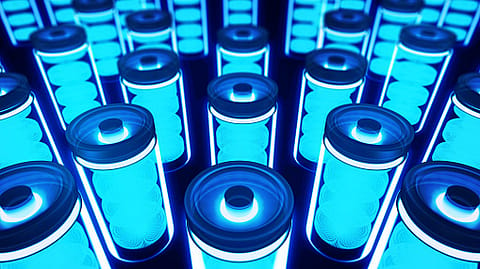Correction in duty structure can encourage investments in alternative battery technologies: IVCA white paper
A new IVCA white paper suggests aligning customs duty for advanced battery technologies to 5% and reducing GST on ACC batteries to boost investments and local manufacturing.

The current tax structure is creating market distortions and thereby disincentivising investment in (and adoption of) alternative battery technologies despite India’s heavy dependence on imported lithium-ion batteries, says a new whitepaper on “Catalysing clean tech battery manufacturing: Strategic tax Reforms for a Future-ready industry”.
Released on the second day of the IVCA GreenReturns Summit 2025 held in Delhi, the report seeks to align customs duty for all advanced battery technologies to 5% from 15%, similar to the customs duty rates for lithium-ion batteries and further reduce GST on ACC batteries from 18% to 5% to distinguish them from outdated lead-acid batteries and fix the inverted duty structure where such batteries are used in the EV industry.
Such a correction in duty structure will boost attract investments across diverse battery technologies, enhance energy security by leveraging India’s abundant sodium resources, incentivise local manufacturing and create 90–180 job per GWh production capacity, the report said.
Advanced battery technologies include lithium-ion batteries, redox flow batteries (including vanadium redox, iron, and zinc bromine flow batteries), sodium-sulfur and sodium-ion batteries, liquid-metal batteries, metal-air batteries, and solid-state batteries.
“The government has shown tremendous foresight in promoting green mobility and clean technology. The whitepaper highlights that the next step is to create greater policy synergy by aligning customs duty and reducing GST on all advanced batteries to 5%. This would help lower battery costs, make EVs more affordable, and accelerate India’s clean energy transition—directly supporting the vision of a sustainable and prosperous future”, Meyyappan Nagappan, Partner, Trilegal, said.
The whitepaper was jointly launched by IVCA, Trilegal and Bharat Climate Forum.
India is targeting 500 GW of renewable energy capacity and 30% EV penetration by 2030, creating an unprecedented demand for advanced energy storage solutions.
Recommended Stories
Global battery demand is estimated to triple by 2030, and India’s domestic demand is projected to reach 127 GWh. Capturing 13% of the global battery market could unlock an annual opportunity worth $19.5 billion for Indian manufacturers.
Energy storage technologies and infrastructure are expected to play a significant role in assisting India to meet its clean energy commitments. However, the success of renewable energy integration depends on cost-effective and efficient energy storage solutions, thereby making battery technology a crucial enabler of this transition.